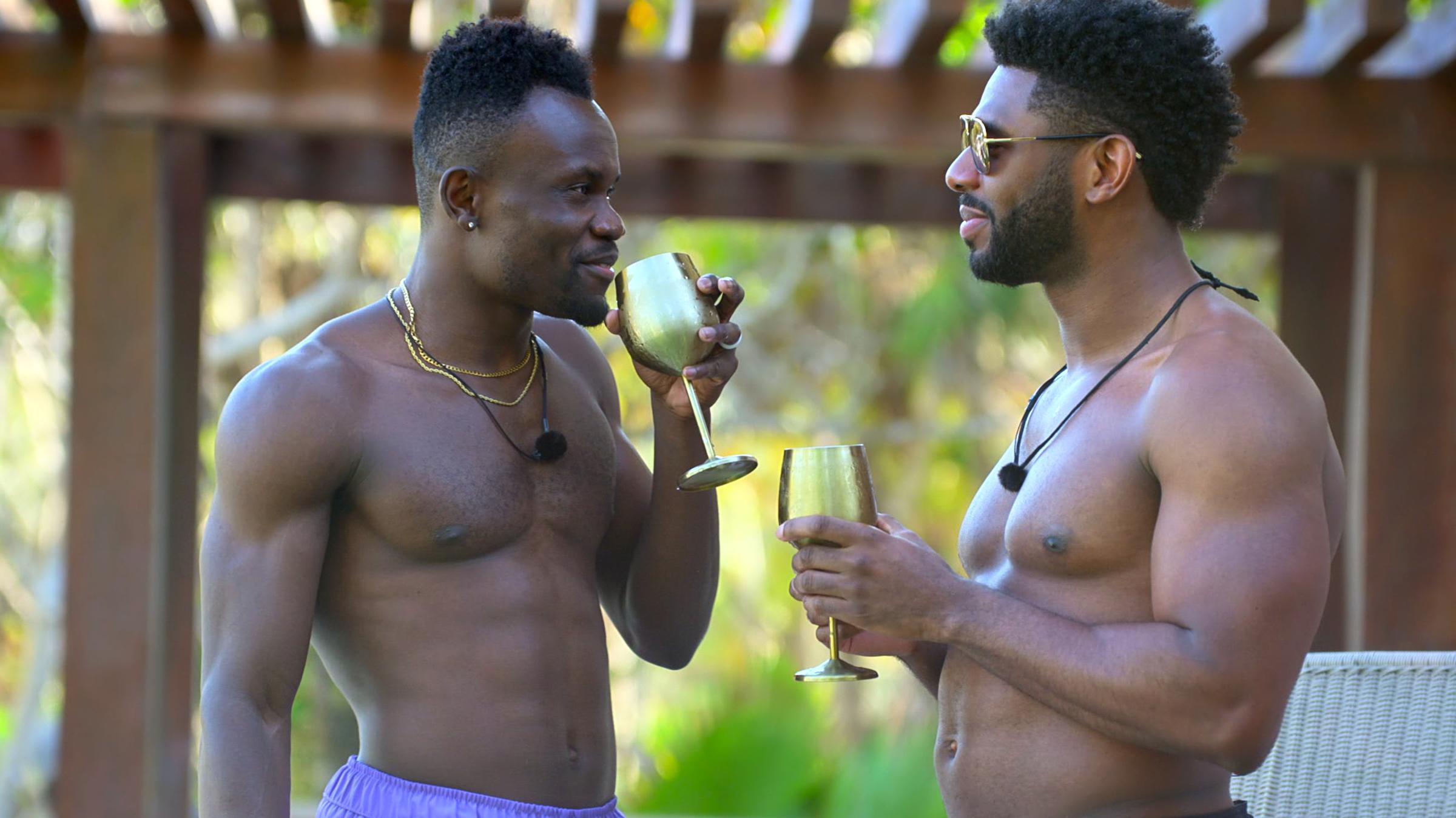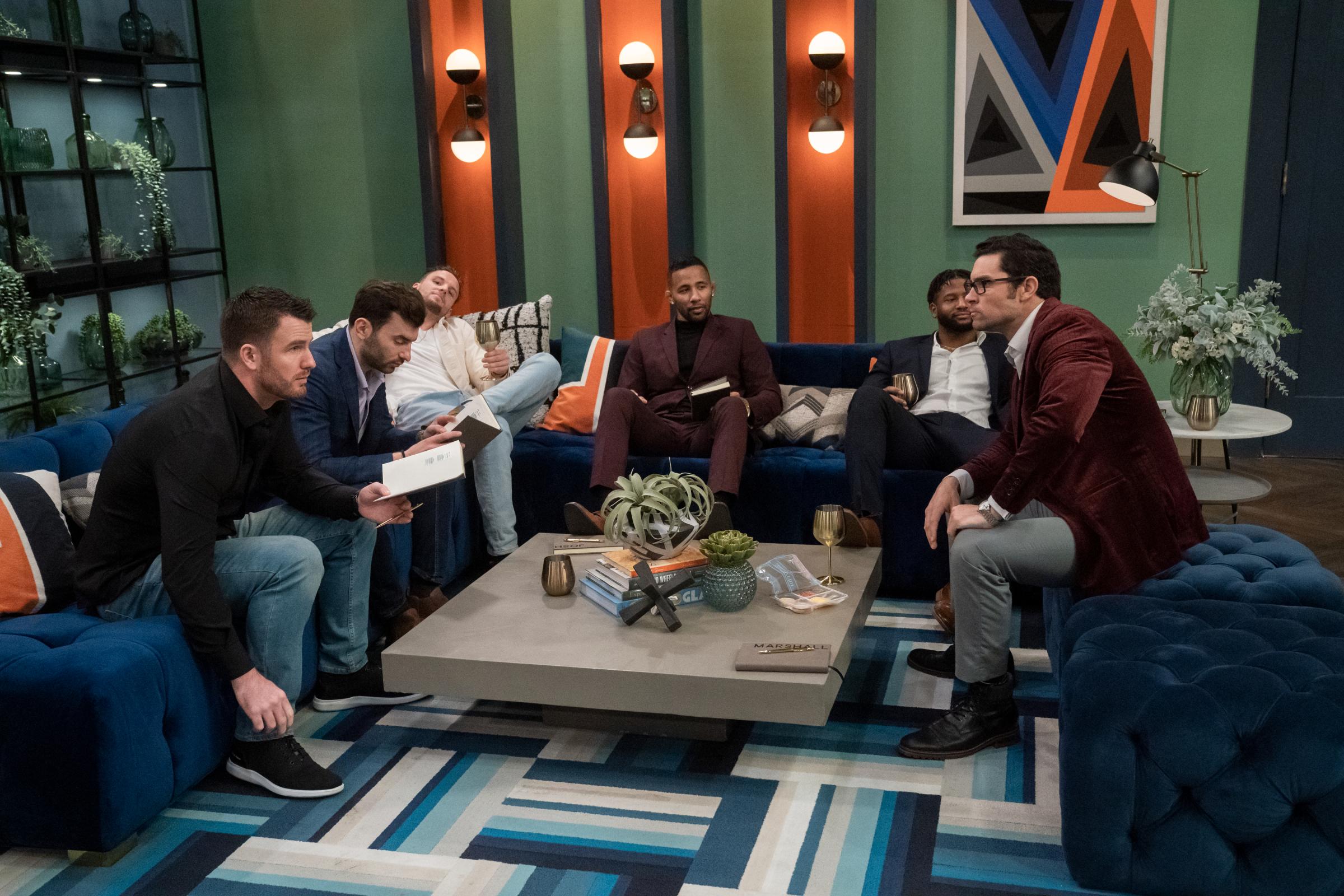Spoiler alert: This article discusses events from the first five episodes of Love Is Blind Season 4.
A few episodes into the fourth season of Netflix’s wildly popular dating series Love Is Blind, 26-year-old marketing manager Micah gently breaks off her relationship with Kwame, 31, a sales development manager. Clearly caught off guard, Kwame—who isn’t looking at, and in fact has never seen, Micah because the show’s premise dictates that couples don’t meet face-to-face until they’re engaged—defaults to the oral equivalent of a form rejection letter.
“Thank you for taking your time, for listening,” he tells her. “It was fantastic getting to know you, and I hope that works out for you to the best of your ability. I truly wish you the most luck. Thank you for being transparent with me.”
It’s a telling moment—not because it reveals Kwame’s innermost self, but because it’s so representative of a curious tendency among Love Is Blind casts past and present. While decades of reality TV have yielded such clichés as “I’m not here to make friends,” and dating shows tend to abuse pop-psychology and self-help buzzwords, from connection to journey to toxic, the mix of marriage-ready singles who sign up for this so-called social experiment often seem most fluent in the language of corporate America. Throughout season 4, cast members talk about leaning in to their engagements and feeling burnout from years of failed relationships. “I think it just speaks to core values,” Micah observes when she meets Kwame and he explains why he chose to use his real name on the show, rather than an Americanized alternative, Alex.

In many ways, it makes sense that the jargon of white-collar leadership manuals and corporate communications would be a lingua franca in Love Is Blind’s famous pods. Dating shows don’t all appeal to the same kind of participants. Beachfront flirt-fests in the vein of Love Island, Temptation Island, and Too Hot to Handle—as well as self-aware takes like FBoy Island, the canceled HBO Max series that recently found a new home on the CW—tend to attract professional exhibitionists: influencers, models, actors, personal trainers looking to promote their brand by flexing shirtless for an audience of millions. Even on The Bachelor and its ilk, the typical contestant is destined to find fleeting fame, not a lifelong mate.
While no cast is monolithic, a couple dozen 20- and 30-somethings who are more eager to fast-track their romantic futures than to launch ongoing careers in reality TV seem more likely to have already settled into traditional professions. Indeed, a plurality of Love Is Blind’s fourth cast have some combination of the words marketing, manager, senior, sales, coordinator, director, or specialist in the job titles that identify them on screen. It probably isn’t a coincidence, either, that an even higher percentage of participants who get engaged in the pods, and thus become the season’s main characters, fit the above description. Whatever their individual skill sets happen to be, these professionals share a vocabulary honed in conference rooms and client emails. As anyone who’s ever worked in an office can tell you, language plays a huge role in that culture.

It’s not news that people tend to feel most comfortable around those with whom they have the most in common. The pods, where all the cast members have to go on are their conversations, make the words that come out of each person’s mouth even more crucial than they’d normally be. If the typical blind date feels a bit like a job interview, then these encounters are interviews pared back to pure Q&A. (Two season 4 cast members actually work as recruiters.) Daters ask one another about their values and goals, and sometimes go so far as to pose the kind of brain-teasers that make interviews for many tech and finance positions so fearsome.
The corporate language seems to come out especially often when cast members are angry or frustrated. “I can’t get you to invest,” Zack, a 32-year-old attorney, complains to his match, Irina. “What I see in you is unlimited potential,” another man tells his fiancée, later in the season, upon discovering a threat to their relationship. Asked to make a difficult compromise for his potential wife-to-be, someone else quips: “Follow up with an email, if you could, after this meeting.” There’s easy comfort to be found in euphemisms, whether they’re inside jokes or urgent pleas.

As shallow and mechanical as some of these utterances look on paper, they don’t necessarily reflect insincerity. Rather, I think they’re representative of a certain relatively successful subset of a certain financially stressed generation for whom the boundaries between work and home verge on nonexistence. In the season 4 premiere, co-host Vanessa Lachey asks the cast why they chose to come on the show. “I find myself easily distracted with work, my phone”—where swiping through dating-app profiles isn’t so different from digging through resumes—”and this is just the perfect opportunity to set that aside,” says real estate investor Ryland, 28. When the couples destined for the altar return from their pre-wedding honeymoons in Mexico and move in together, long workdays and tedious telecommutes suddenly become an issue.
Four seasons in, Love Is Blind might have proven that it’s possible to fall in love with someone you’ve never seen or touched. (Not that said love always translates into sexual chemistry or ends in marriage, or that said marriages never end in divorce.) But even in the pods, there’s more going on than two beautiful souls communing free of any outside influence. The corporate workplace penetrates even this supposedly sacred “experiment,” dropping signifiers of education, ambition, and social class wherever it goes.
More Must-Reads from TIME
- Caitlin Clark Is TIME's 2024 Athlete of the Year
- Where Trump 2.0 Will Differ From 1.0
- Is Intermittent Fasting Good or Bad for You?
- The 100 Must-Read Books of 2024
- Column: If Optimism Feels Ridiculous Now, Try Hope
- The Future of Climate Action Is Trade Policy
- FX’s Say Nothing Is the Must-Watch Political Thriller of 2024
- Merle Bombardieri Is Helping People Make the Baby Decision
Contact us at letters@time.com